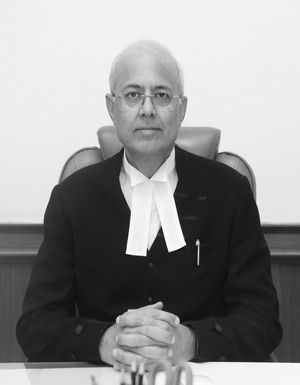
Meet Justice Manmohan and his Notable Judicial decisions
Justice Manmohan, born on December 17, 1962, in Delhi, is a sitting judge of the Supreme Court of India, having assumed office on December 5, 2024. He previously served as Chief Justice and Acting Chief Justice of the Delhi High Court, and his judicial career is marked by a balance of legal acumen, efficiency, and a progressive approach to rights and technology. An alumnus of Modern School, Hindu College, and Campus Law Centre (Delhi University), he began his legal practice in 1987, focusing on civil, criminal, constitutional, taxation, arbitration, and intellectual property rights litigation.
Background and Career
Justice Manmohan was designated as a Senior Advocate in 2003, having represented clients in several high-profile cases such as the Dabhol Power Company dispute, the Hyderabad Nizam’s Jewellery Trust, Claridges Hotel litigation, and significant tax and property matters. He was appointed as an Additional Judge of the Delhi High Court in 2008 and became a permanent judge in 2009. He served as Acting Chief Justice in 2023 and was sworn in as Chief Justice in September 2024 before his elevation to the Supreme Court.
Landmark Judgments
1. Right to State Support for Medical Care
In Mohd. Ahmed v. Union of India (2014), Justice Manmohan held that economically weaker sections are entitled to state support for chronic and critical medical conditions. This judgment reinforced the state’s obligation to uphold the right to health and access to life-saving treatment for the underprivileged.
2. Digital Education and Child Rights During COVID-19
He delivered a significant ruling recognizing every child’s right to access digital education during the pandemic, directing the creation of a universal administrative protocol for the rescue and rehabilitation of children who are victims of human trafficking. This expanded the scope of Article 21A (right to education) in the digital era.
3. Intellectual Property and Technology Law
Justice Manmohan’s judgment in UTV Software Communication Ltd. & Ors. v. 1337X.TO & Ors. (2019) pioneered the concept of dynamic injunctions in India, empowering courts to block infringing websites proactively, thus strengthening copyright enforcement in the digital space.
4. Trademark Damages
In Koninlijke Philips N.V. & Anr. v. Amazestore & Ors. (2019), he developed a formula to compute damages in trademark infringement cases, providing clarity and consistency in awarding compensation for IP violations.
5. Social Identity Rights
Justice Manmohan permitted children to use their mother’s surname in legal documents, setting a progressive precedent for gender equality and the autonomy of single mothers and children in matters of personal identity.
Judicial Philosophy
Justice Manmohan’s jurisprudence is characterized by a commitment to social justice, technological adaptation in law, and the protection of fundamental rights. His judgments have advanced the rights of marginalized groups, fostered innovation in legal remedies, and reinforced the judiciary’s role in adapting to contemporary societal challenges.












comments